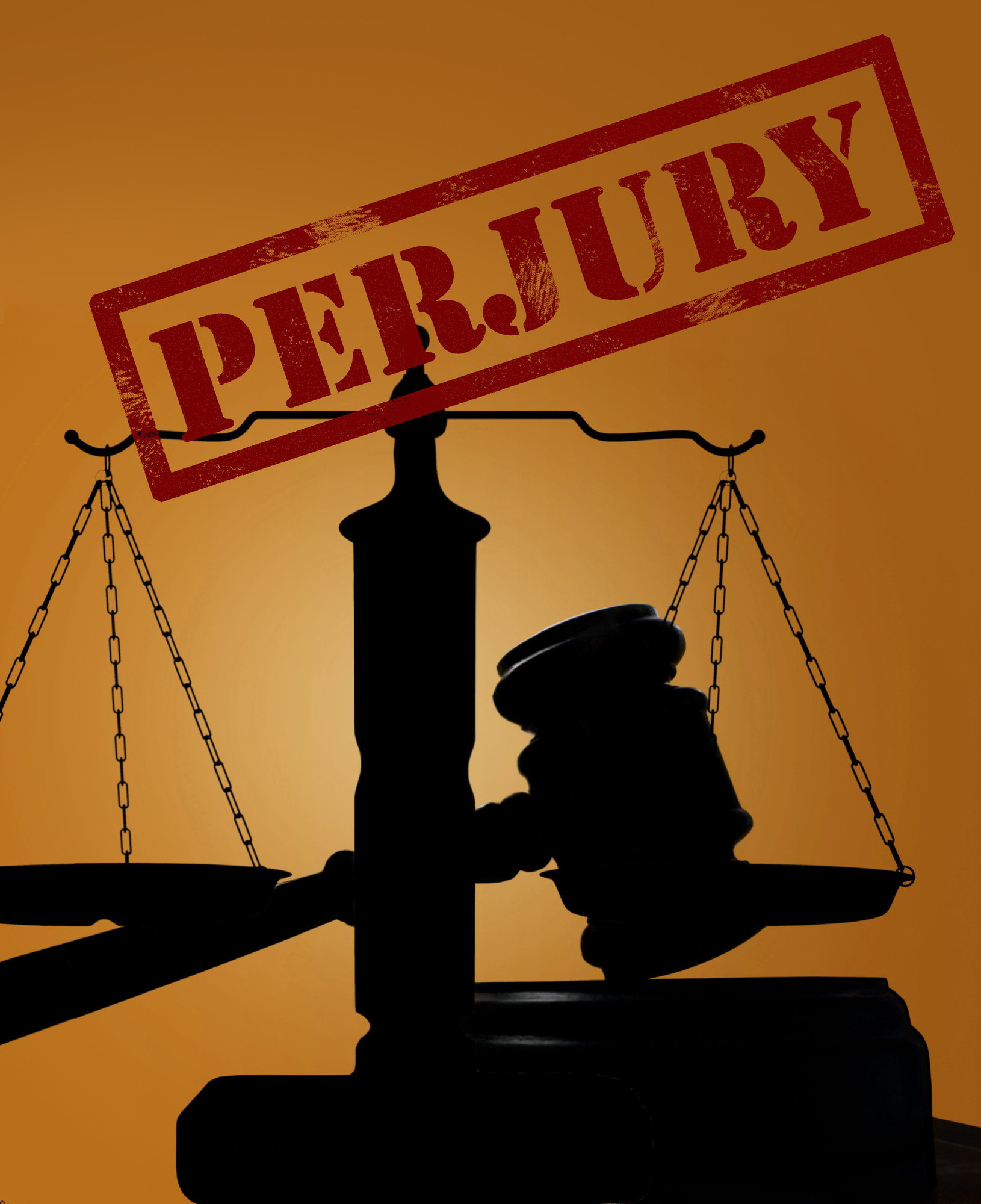“I swear to tell the truth, the whole truth, and nothing but the truth” – a mantra recited dozens of times a week in TV shows and movies. It’s so familiar that its significance can be overlooked. But, when sworn in a court or other official proceeding, it makes everything said afterward either the truth or perjury.
What Is Perjury?
A witness under oath commits perjury by making a statement in a court or other proceeding that the witness knows is not true. The statement must be “material” to the subject of the proceeding, meaning that it must have some relationship to the lawsuit, investigation, or inquiry of the proceeding.
All parts of this definition are important, so let’s take a closer look at each:
Perjury only happens under oath. The witness must have vowed to tell the truth to someone who is authorized to administer the oath, such as a judge, notary public, or other officials. And, the proceeding must be “competent,” that is, authorized by law. For example, a grand jury that has launched an investigation that is beyond its powers is not a competent proceeding.
Perjury requires a statement. Silence or a refusal to give a statement is not perjury (but may lead to other charges). In addition to testimony, a statement adopted in the proceeding, as when a witness authenticates false writing while under oath, is also perjury.
Intent to mislead. The witness must know that the testimony is false and must give it with the intent to mislead the court.

Only false statements are perjury. False testimony that results from confusion, a lapse of memory, or a mistake is not perjury. Conflicts in testimony may be perjury if one of the conflicting statements is necessarily false (and prosecutors can prove perjury without proving which one is false).
Inconsistent statements can lead to perjury. A witness’s testimony is viewed as a whole. So, a witness who claimed he did not remember an event when questioned at one point in the testimony, but who clearly recalled aspects of the event when asked later, may have committed perjury. (Inconsistency under oath is what led to Bill Clinton’s impeachment.) But, where a witness’s testimony is inconsistent in a way that is of no consequence in the proceeding, that is not perjury.
A statement made in court or other proceedings. False statements made outside of official proceedings are not perjury. For example, if a witness lies to a lawyer who is taking notes in order to draft an affidavit, the witness has not committed perjury (unless she later signs the affidavit under oath with the false statement in it). Sworn, written statements submitted to courts or government agencies are statements made in a proceeding and subject to perjury laws.
Only a “material” statement can be perjury. The false statement must be capable of influencing the proceeding – that is, it must have a relationship to the subject of the proceeding. This includes a false statement that would tend to mislead or hamper an investigation. This means that a lie, even under oath, about a subject that is not material to the proceeding is not perjury. For example, falsely bragging that “I never update my Facebook page at work,” while testifying in a case having nothing to do with social networking at work, would not be a likely candidate for a perjury charge.
A material statement that is superfluous to the outcome may still be perjury. Even where false testimony does not affect the outcome of a case, the lying witness may be prosecuted for perjury. For example, suppose an ex-cop is on trial for his involvement in a gambling operation. Several witnesses have testified to his involvement, but on the stand, he falsely denies any involvement. This denial would be a material statement, even though it arguably did not affect the jury’s finding of guilt (the jury had the other witnesses’ testimony to rely on).
Common Defenses to Perjury
True Statements
Remember, perjury is giving false testimony—saying or writing something that is not true. This means that true statements, even when made to intentionally mislead, are not perjury. For example, where a defendant in a mail fraud case testifies that he did not “send” the fraudulent document because he did not actually put the document in the mailbox himself, he has told the literal truth and has not committed perjury. In such a situation, the prosecutor has to ask further questions (such as, “did you direct someone to drop the document in the mailbox?”) in order to get the defendant to admit to participating in the fraud or get the defendant to lie about participating.
Recanted or Corrected Statements
Sometimes, witnesses say or write something that they later recant. Whether their change of heart constitutes a legally recognized defence to a perjury charge depends on the law of the state where charges would be brought.

How is Perjury Punished?
A person convicted of perjury under federal law may face up to five years in prison and fines. The punishment for perjury under state law varies from state to state, but perjury is a felony and carries a possible prison sentence of at least one year, plus fines and probation. Penalties are increased in relation to how much the perjury interfered with the proceeding. When the perjurer was a witness in his own criminal trial, his sentence for the underlying conviction may also be increased, on the grounds that a lying defendant is one who has a bad character and is not likely to be rehabilitated quickly.
Judges can punish a perjurer who lied under oath to hide or assist a crime in a way that goes beyond the sentence for perjury. That defendant may also be charged as an accessory to the crime he was attempting to hide or assist if that charge will carry a greater sentence. And a perjurer may even be charged as an accessory to a crime of which he is convicted if he lied to conceal that crime.
There is no civil remedy for a criminal defendant wrongly convicted based on another’s perjury, nor for a party to a civil lawsuit who loses because of a witness’s perjury.


So why aren’t justices being charged with perjury? They clearly lied (outright).